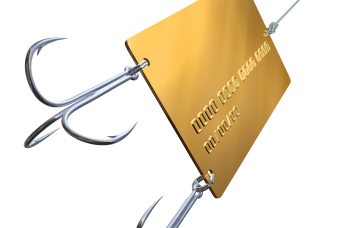Thanks to a legal agreement this year between merchants and credit card payment networks, retailers are now permitted to charge surcharges for credit card transactions. In addition, government and public utilities have long been permitted to impose credit card surcharges.
When presented with different prices for credit and cash, what should you do?
First, cardholders should consider if they are going to pay their balance in full each month or not. Those who will not will owe interest on their charges and will always be better off paying in cash.
It’s important to understand how the credit card surcharge is calculated. Some are calculated as a percentage of the transaction, while others have a fixed fee or both.
Do some math first
Rewards card users will want to calculate if the price paid will be greater or less once they calculate their rewards.
[pull_quote align=”left”]If a gas station charges $3.84 per gallon with a credit card, and $3.78 for cash, the difference is 6 cents. This is the equivalent of an approximate 1.5% discount for cash. Anyone with a card that offers 1.5% cash back or less would want to pay with cash.[/pull_quote]For example, if a gas station charges $3.84 per gallon with a credit card, and $3.78 for cash, the difference is 6 cents. This is the equivalent of an approximate 1.5% discount for cash. Anyone with a card that offers 1.5% cash back or less would want to pay with cash, while those who receive more than 1.5% cash back from gasoline purchases will want to use their credit card.
People using a credit card that doesn’t offer rewards will always end up paying more for the transaction, but there are a few reasons why they might still consider doing so.
Their credit card will offer convenience and security that cash cannot match. Cardholders will not have the risk of carrying cash, and they will have the security of knowing that if the merchant fails to deliver the goods or services, they can request a charge back from their card issuer.
Other factors to consider in credit card surcharges
Credit cards frequently feature purchase protection and travel insurance policies that can also be worth paying a few cents extra as a credit card surcharge.
Citi cards come with the company’s Price Rewind service that automatically refunds any price difference found within 30 days.
Another credit card surcharge to be aware of is the foreign transaction fee. Most cards charge a 3% fee on all charges processed outside of the United States. This surcharge is nearly always greater than any rewards received, and travelers should look for one of the growing number of credit cards available without this fee.
Finally, cardholders should be aware that credit card surcharges are currently against the law in 10 states: California, Colorado, Connecticut, Florida, Kansas, Maine, Massachusetts, New York, Oklahoma, and Texas. Other states are considering adopting similar laws.
If you’re making a purchase in one of these states, and a surcharge is added, you can inform the store’s management of its error, or contact the state’s Attorney General.
By understanding all of the options available, credit card holders can make the right decision when faced with a credit card surcharge.




